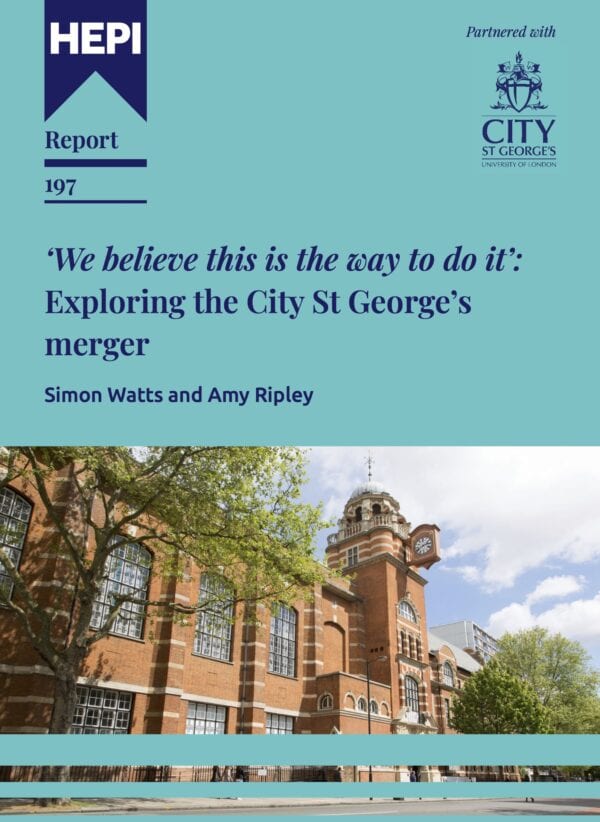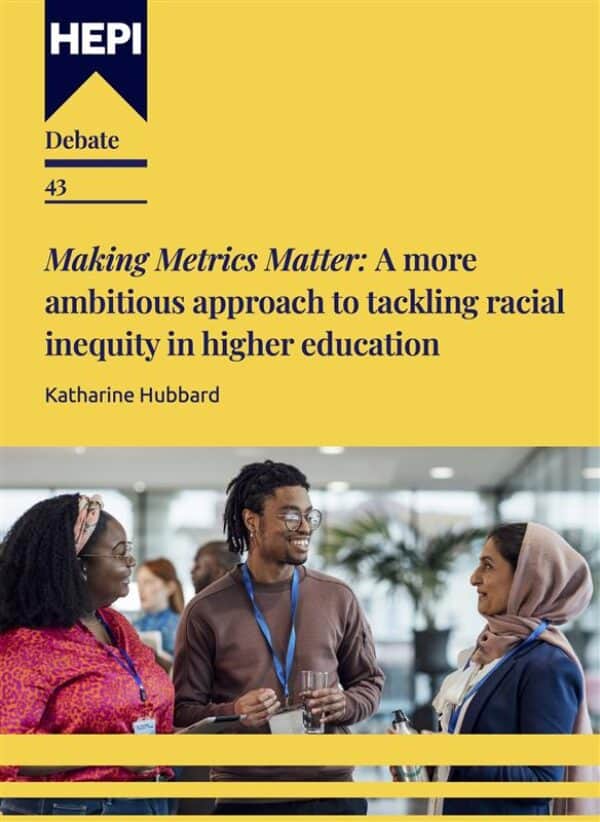Humanising the international student experience: the post-study reality of gaining UK employment
This blog was written by Helen Atkinson, Careers Consultant at Newcastle University’s Careers Service, Gemma Green, Head of External Relations at the Association of Graduate Careers Advisory Services (AGCAS), and Jim Campbell, Assistant Director at the University of St Andrews’ Careers Centre.
The Association of Graduate Careers Advisory Services (AGCAS) is the expert membership organisation for higher education student career development and graduate employment professionals. Through our members, we support the best possible career outcomes from higher education for individuals, institutions, society and the economy. Helen and Jim are members of the AGCAS Internationalisation Task Group.
The introduction of a new immigration route for international graduates has undoubtedly been one of the contributing factors to the UK surpassing its target (a decade early) for the number of international students studying in the UK. Under the Graduate Route, international students can remain in the UK to seek work for a two-year period (three years for PhD candidates), thus providing flexible opportunities for international graduates to gain UK employment and enable employers to recruit from a global talent pool without requiring a sponsor licence.
Although not all international graduates choose to remain in the UK post-study, the announcement and subsequent launch of the Graduate Route in July 2021 has certainly proved popular with international recruitment markets. UCAS have already reported significant increases in non-EU student recruitment and predict that the volume of international undergraduate applicants will increase by 46 per cent to 208,500 by 2026.
This is excellent news for individual institutions and their local communities, for the higher education sector as a whole, and for the economic prosperity of the UK. The consolidation of this early success will depend on the quality of the international student experience and positive post-study outcomes. However, on both counts, the current policy context sends contradictory messages. To many in the sector, it is baffling that gathering international graduate outcomes data has been scaled back at a time when the Government has pledged to ‘work with the sector to enhance the evidence base on international graduate outcomes’.
AGCAS project
In the interests of enhancing a dwindling body of evidence, the Association of Graduate Careers Advisory Services (AGCAS), led by its Internationalisation Task Group, initiated a project to develop our knowledge of the outcomes of international students choosing to remain in the UK after graduation.
Our aim was to build a clearer picture of the effectiveness of the Graduate Route and gain insights into the facilitators and barriers to international graduates’ success in securing UK employment. This does not signify that the outcomes of international students choosing to remain in the UK are more important than those who return home (or go elsewhere); it was our chosen area of focus given the current absence of research and data in this area.
International graduates were invited to complete a survey to tell us more about their experiences of searching and applying for employment in the UK. The survey ran from 25 March to 29 April 2022 and was open to undergraduate and postgraduate international students who had completed their studies at a UK university after the launch date for the Graduate Route, 1 July 2021.
We were particularly keen to understand how international graduates perceived employers’ knowledge of post-study immigration routes and whether there were specific characteristics or circumstances which had enabled international graduates to find work. Importantly, the research sought to humanise the experiences of international graduates remaining in the UK. We also invited graduates to share a supplementary case study to talk about their approaches to job seeking and how they had navigated the visa application process. Mindful of the recent HEPI / Kaplan report on careers and employability support for international students, we also invited comment on their use of university careers services.
The project had the support of member organisations of the International Student Employability Group (ISEG), the group formed in response to the findings of the AGCAS / Universities UK International (UUKi) / UK Council for International Student Affairs (UKCISA) Supporting International Graduate Employability: Making Good on the Promise report.
Survey coverage
A total of 1,010 international graduates engaged with the survey. For the first round of analysis, we chose to focus on the 345 international graduates currently holding either a Graduate Route or Skilled Worker visa. Of these respondents, 85 per cent held a Graduate Route visa and 15 per cent were being sponsored by their employer under the Skilled Worker route. The majority (77 per cent) of respondents had undertaken postgraduate study and 71 nationalities were represented. Indian graduates made up the highest proportion of respondents (29 per cent), which aligns with Home Office statistics showing that over a third of the 28,700 Graduate Route visas granted in the year ending September 2021 were for Indian nationals.
Responses were received from graduates of 52 universities throughout the UK with 35 per cent of respondents studying business, 15 per cent studying engineering, and eight per cent studying computing. Two thirds were employed on either a full-time or part-time basis. Only three respondents reported as self-employed. To determine the types of roles being offered under the Graduate Route, we asked graduates in employment to provide us with their job title and a brief description of their role and responsibilities. We then coded their responses against the Office for National Statistics’ Standard Occupational Classification (SOC 2020) framework. Seventy-two per cent were in graduate-level employment (SOC 1-3).
Successes
The research findings demonstrate the wide range of industries and employers benefiting from international talent throughout the UK. We saw examples of small- to medium- sized enterprises (SMEs), multinationals, charities and public sector organisations all using the Graduate Route to attract international graduates. We asked graduates whether their expectations of their visa were being met. More than half agreed that they were, with many commenting on the flexibility of the Graduate Route and the opportunity and extra time it has provided to seek longer-term employment in the UK. Comments included:
It has given me the opportunity of time. I’ve been able to look for work, my employer wasn’t worried about my visa expiration date, I have enough time to gain relevant work experience and to get a Skilled Worker visa.
I am able to secure jobs and move around different roles with the flexibility of the Graduate Route visa.
The main reason for applying … was to secure a job within the two-year time frame and secure a sponsored job visa before the visa expires.
Many respondents also spoke of the ease of application when applying for the Graduate Route visa. One respondent reported:
Graduate visa application was easy and straightforward. It was also quickly granted.
Barriers Despite these encouraging comments, respondents also shared the challenges they had faced explaining their right to work to employers during the recruitment process and how employers had been hesitant to invest time in international graduates. Thematic analysis of the responses from graduates who did not feel the expectations of their visa were being met revealed employers’ poor knowledge of post-study work visas as the most common reason. Others cited examples of employers who had openly refused to accept applications from international graduates despite the Graduate Route being a valid right to work. Respondents commented:
Finding a job was a soul crushing experience at moments. Many recruiters told me I filled the ‘profile’ they were looking for but asked me to ‘fix’ my migration situation before applying for a job.
I was happy when I got a visa. I am not happy with the employer’s mindset.
Everyone is asking for UK experience but no one is willing to hire. There is a huge resistance to hiring people who need a visa. That question is a part of the application form and instantly makes us feel alienated. Employers are not educated on the process and are daunted by it.
Additional barriers graduates reported were the high costs associated with the Graduate Route, which amounts to around £2,000 for those on a two-year visa. Comments included:
While I think the cost of the application is fair owing to its benefits, the (Immigration) Health Surcharge was outrageous … We, as international students, already pay over three times on the average what home students pay in academic fees and living.
For someone like me who is not working, these are costs that I cannot afford.
Identifying patterns
It is our intention to undertake a second round of analysis over the summer months, interrogating and interpreting the data further to identify the patterns or factors that more clearly contribute to international graduates’ success. We also have more than 100 case studies to extract and share with the sector and with prospective international students (we think it’s telling that more than half have requested to remain anonymous, including those who have secured employment).
While we have, so far, only scratched the surface of the information we collected through our survey, it is already clear that a collective effort is needed if the UK is to retain its competitive edge in international student recruitment. Yes, we must celebrate and champion the introduction of the Graduate Route and the opportunities this has provided for international graduates to seek employment in the UK, but we cannot rely on this alone. And, as much as there are many positive experiences to share, bad news travels fast. International graduates’ accounts of the challenges they are facing in gaining employment in the UK will filter through to international recruitment markets. We need to be mindful of this as other countries look to enhance their post-study work visa options for international graduates to address their territory’s skills shortages.
Further consideration needs to be given to supporting international graduates gain UK employment once their Graduate Route visa expires, since this does not lead directly to settlement. To switch their employee to a Skilled Worker visa, most employers would need to pay additional costs, thus creating unnecessary (additional) barriers to retaining talent.
And there is a clear need for improved Government promotion of the Graduate Route (and other immigration routes) to employers, highlighting the benefits of hiring international graduate talent. Enhanced promotion should be accompanied by clear guidelines for employers to help demystify any perceived risks and provide reassurance.
We must do what we can now to avoid jeopardising the success of the Graduate Route. Other countries have already enhanced and extended their post-study work offer to international students. If the UK is to maintain its competitive advantage and protect its market share, we must surely commit to doing the same.
We will be sharing our research findings at the AGCAS Annual Conference, UKCISA Annual Conference, and BUILA Annual Conference.



Comments
Denis Blight AO says:
The idea is that graduates obtain post study employment for two or three years and that during that period they have the option to apply for a skilled workers visa enabling them to settle permanently in the UK. Is that right?
The only issue that concerns me is the risk of charges of facilitating ‘brain drain’ and to minimise that risk some source countries might impose road blocks to international student recruitment.
Has this been considered?
Reply
Add comment